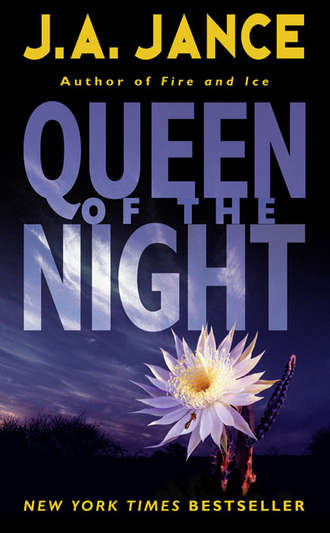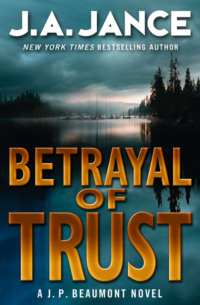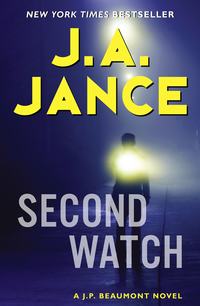
Полная версия
Queen of the Night
“I’ve been working Ursula Brinker’s murder all my adult life,” he said. “She was a kid when she got murdered. I had just signed on to my first law enforcement job. I was a campus cop at ASU. Ursula died in California—on a beach in San Diego during spring break. ASU was a real community in those days—a smaller community. She was a cute girl—an outstanding student—and everybody took it hard.”
Brandon nodded. He knew it was true. He also knew much of this history, but he let Geet tell the story his own way.
“When Ursula’s mother won that huge Mega Millions jackpot of lottery money and wanted to start The Last Chance, she came looking for me. Hedda Brinker wanted to help others, but bottom line, she wanted to help herself.”
Geet paused for a spasm of coughing. Brandon waited until it passed. Geet took a sip of water before he continued.
“So I’ve been working Ursula’s murder all along,” he said.
“Any leads?” Brandon asked.
“When it came to ‘alternate lifestyles’ in 1959, you could just as well have been from another planet.”
“What are you saying?” Brandon asked. “That Ursula was a lesbian?”
“I don’t know that for sure. I’ve heard hints about it here and there, but nothing definitive. I’ve spoken to all the girls who went to San Diego on that spring-break trip, all but one, her best friend, June Lennox. Holmes is her married name. I’ve known where she lived for a long time, but she would never agree to speak to me before this.”
That caused another spasm of coughing.
Brandon understood the issue. As a TLC operative without being a sworn police officer, Geet would have had no way of compelling a reluctant witness to cooperate.
“And you couldn’t force the issue,” Brandon said.
Geet nodded. “The letter came two months ago, just as I was going in for another round of surgery.”
“You want me to read it?”
“Please.”
The note on a single sheet of paper was brief:
Dear Mr. Farrell,
It’s time we talked. Please give me a call so we can arrange to meet.
Sincerely,
June Lennox Holmes
The 520 prefix on the phone number listed below her name meant that it was located somewhere in southern Arizona—or that it was a cell phone that had been purchased in southern Arizona.
“Did you talk to her?” Brandon asked as he folded the note and returned it to the envelope.
Geet shook his head. “I’ve been too sick,” he said. “I thought that eventually I’d bounce back and be well enough to follow up myself. At least I hoped I would be, but that’s not going to happen. This time there doesn’t seem to be any bounce, and I need some answers, Brandon. I couldn’t find them for Hedda, but maybe you can find them for me.”
Opening the top of the brimming evidence box, Brandon put the envelope inside, then closed it again.
“So you’ll do it?” Geet asked.
“I’ll do my best,” Brandon said.
“Don’t take too long,” Geet cautioned. “I don’t have much time, but don’t say anything about that to Sue. She doesn’t know how bad it is.”
Yes, she does, Brandon thought. She knows, and so do you. Maybe it’s time the two of you talked about it.
Tucson, Arizona
Saturday, June 6, 2009, 2:00 P.M.
93º Fahrenheit
“Who was your company?” Lani Dahd asked her mother, as they left the house in Gates Pass and headed into Tucson. Mrs. Ladd was in the passenger seat, while Gabe had moved to the back and was listening to the conversation.
“What company?” Mrs. Ladd returned.
“I don’t know,” Lani said. “Gabe told me there was a man sitting and talking to you when we got to the house.”
Frowning, Mrs. Ladd turned and looked questioningly at Gabe. Her eyes were a startling shade of blue, like the color of the blue jays that sometimes strutted around the yard. Her skin was surprisingly pale. Her silvery hair had been pulled back with a turquoise-studded comb.
“No one was there,” Mrs. Ladd said after a long moment, turning back to Lani. “Just me. Gabe must have been mistaken.”
Gabe was shocked. He wasn’t mistaken. He had seen the man with his own eyes, and he was telling the truth. Lani Dahd and his parents always said it was important to tell the truth, no matter what. And he did. So why was it okay for Mrs. Ladd to lie and say that the man wasn’t there when he had been?
Now that Gabe thought about that man again, the one who wasn’t there, he realized one more thing about him. The man sitting across from Mrs. Ladd at her patio table was blind. He had to be. He had been sitting there staring up into the sky, looking directly at the sun. He couldn’t have done that if he hadn’t been blind already.
Gabe started to voice his objection and to insist once again that the man really had been there, but then Mrs. Ladd suddenly changed the subject.
“I’m going to sell the car,” she announced.
“The Invicta?” Lani asked.
Invicta? What was that? Gabe knew the makes and models of lots of cars because they came through his father’s auto-repair shop every day, but he had never heard of a car by that name. Maybe it was some brand-new car that people on the reservation didn’t have yet. They mostly liked pickups. Invicta didn’t sound like a pickup.
“But you love that car,” Lani objected. “Why on earth would you sell it?”
“Do you want it?” Mrs. Ladd asked.
“No,” Lani said. “On my salary, I could never afford to keep it in gas. Maybe Davy would like it.”
Gabe knew that Davy was Lani’s older brother. Gabe also knew that Davy and his wife were getting a divorce.
“I don’t think so,” Mrs. Ladd said. “He’s already got two cars as it is.”
“You still haven’t said why you’re getting rid of it,” Lani insisted.
“I need the space in the garage,” Mrs. Ladd said. “I want to turn that part of it into a studio. Do you know where I can get a pottery wheel?”
“A studio?” Lani repeated. “And a pottery wheel? Why would you want one of those?”
“Why do you think?” Mrs. Ladd said impatiently. “To make pots.”
Gabe knew lots of old women who made pots. Well, maybe not lots, but several. That’s what the Tohono O’odham said women were supposed to do when they got too old to do anything else—they were supposed to make pots. It seemed to him that Mrs. Ladd, with her white hair and pale skin, was already that old. As a result, Gabe didn’t find the possibility of her making pots nearly as odd as her daughter did.
“Are you kidding?” Lani asked. “You’ve never done that before. Ever. Why would you start making pots now?”
“Yes, I did make pots once,” Mrs. Ladd replied. “Back in Joseph. There were lots of artists there. Some of them even came to the high school and taught classes.”
Gabe had no idea where Joseph was. It sounded far away. Maybe it was up by Phoenix.
“Does Dad know about this?” Lani asked with a frown.
“Yes,” Mrs. Ladd said. “I told him.” As the two women in the front seat fell silent, Gabe found himself drifting. He wondered if it was hard for Lani to be an Indian with Milgahn parents. It seemed to him that it made sense to have two parents that were the same kind—from the same tribe.
As they headed north on Silverbell toward Ina, the steady movement of the car and the accompanying silence got to be too much for him. Gabe’s eyes fell shut, his chin dropped to his chest, and he fell asleep.
In his dream the man was there again, just as he had been earlier, sitting beside Mrs. Ladd’s bright blue swimming pool. Only this time, something was different. Gabe wasn’t alone on the patio. Lani Dahd was there with him.
And then the man spoke. “Why, I’ll be,” he said, turning his empty eyes away from the sun and toward the spot on the patio where Gabe and Lani stood side by side. “If it isn’t Lani! Come over here and have a seat. I was hoping you’d drop by.”
Sells, Tohono O’odham Nation, Arizona
Saturday, June 6, 2009, 5:00 P.M.
94º Fahrenheit
Delphina Escalante Enos stood in line at Bashas’ while Rosemary Sixkiller ran the cartload of groceries through the register. Delphina’s four-year-old daughter, Angelina, sat in the child seat of the cart clutching an open box of animal crackers. She munched them carefully, always biting off the heads first.
“You sure look happy,” Rosemary observed.
Rosemary and Delphina had been school classmates, first at Indian Oasis Elementary and later at Baboquivari High School. Rosemary had graduated. Delphina had not. Pregnant at age fifteen, she had dropped out of school to have the baby. Then, when Angie was only two months old, Joaquin Enos, the baby’s father, had run off to take up with someone else. For the better part of three years, Delphina and the baby had stayed on with Delphina’s parents in Nolic, but her father was ill now— with diabetes—and having a busy baby underfoot was too hard on everyone.
Realizing she had to do better for her child, Delphina had earned her GED and had managed to get a job doing filing for the tribe. It was at work where she had met Donald Rios, a man who hailed from Komelik Village and who was also on the tribal council. His family had land and cattle.
By reservation standards, the Rios family was wellto-do. Their family compound consisted of four mobile homes set around a central courtyard—a concrete central courtyard. They also had their own well—one that was deep enough to work even in the dead of summer. That was unusual, too. Most of the time a well would belong to an entire village rather than to a single family. But it wasn’t just Donald’s comfortable circumstances that made him so appealing to Delphina.
Donald was everything that Joaquin Enos had never been. Donald was kind and caring. He had a job that he went to every day. He was responsible, and he loved Delphina and her baby to distraction. He never came to see Delphina without bringing something for Angie—a toy or a book or a packet of stickers.
He was someone Delphina was comfortable with. That made far more sense to her than the fact that his family might have money. All his relatives—parents, brothers, and sisters—were reputable, churchgoing people—Presbyterians. As far as Delphina’s own family was concerned, there were plenty of skeletons in those closets—people who had done bad and who were no longer mentioned at family gatherings.
But the other thing the Rios family had going for them was a strong connection to the old ways. Maybe it was just because they lived so close to I’itoi’s home on Baboquivari that they held to many of the old traditions. Delphina loved hearing Donald talk about his beloved old grandmother and how she had told him stories—the traditional I’itoi stories—when he was a little kid. Delphina liked to think that some time when it wasn’t summer, he would tell those same stories to Angie, so she would know them, too.
Right then, though, standing in the checkout line in Bashas’, Delphina beamed at Rosemary’s comment. The clerk’s assessment was true. Delphina Escalante Enos was happy—really happy—for the first time in her whole life.
“Donald is taking us to the dance at Vamori tonight,” she admitted shyly, ducking her head as she spoke. “Both of us,” she added, nodding in Angie’s direction. “He was hinting around that there’s something he wants to show us before we go to the dance.”
“It’s a full moon,” Rosemary said. “Maybe he’ll give you a ring.”
Delphina nodded, but she didn’t say anything aloud. An engagement ring was just what she wanted.
When Donald had stopped by her office on Friday afternoon, he had been teasing Delphina, trying to make her blush. He had told the other girls in the office, the ones Delphina worked with, that he had something special he wanted to show her on their way to the dance. After he left the office the girls had been talking, and they all seemed to think the same thing. Since Donald and Delphina had been going out for a couple of months, it made sense that it would be time for him to give her a ring.
“He’s a nice guy,” Rosemary said. “He comes in here a lot to buy food from the deli. I don’t think he’s a very good cook.”
“I can cook,” Delphina declared. “If we got married, he could buy the groceries and I would cook.”
“Sounds like a good deal to me,” Rosemary said.
They were quiet for a few moments while Rosemary packed Delphina’s groceries into her cloth bags and then loaded them back into the shopping cart. By then Angelina was done with her box of animal crackers and wanted another one.
“No,” Delphina said, shushing her whiny four-yearold. Then she turned back to Rosemary. “Are you coming to the dance, too?” Delphina asked when that job was finished.
The feast and dance at Vamori were always good ones, the best ones of the summer, people said, with plenty of food at the feast house and with a band playing chickenscratch music from sunset to sunrise.
“I guess,” Rosemary said. “At nine. After I get off work, if I’m not too tired.”
Delphina took her groceries out to the parking lot and loaded them into the back of a battered old Dodge Ram pickup. Then she strapped Angie into her booster seat.
The truck wasn’t much, but she was grateful to have it. Before Leo Ortiz, over at the gas station, sold it to her, she and Angie had been forced to walk back and forth to work and to the grocery store from their decrepit mobile home on the road to Big Fields. Walking there wasn’t bad in the morning when it was cool, but after a long day at work, coming home in the afternoon heat had been hard, especially when Delphina had groceries to carry or when Angie was too tired to walk. Sometimes other people would give them rides, but most of the time they walked.
The pickup truck was something else Donald had done for Delphina. He was the one who made that happen. He and Leo Ortiz, the man who ran the garage in Sells, were good friends. Someone’s old truck had broken down and been towed into Leo’s garage. When Leo gave the owner the bad news about how much a new engine would cost, the guy had walked away—without bothering to pay for the towing.
Pickups were always in demand on the reservation, so Leo had gone ahead and put a new engine in the vehicle. He was getting ready to sell it when Donald asked if he would sell it to Delphina—on time. All she had to pay was one hundred dollars a month, and that’s what she was doing. In another year, the truck would be all hers. In the meantime, because she hadn’t been able to buy insurance, she drove it only on the reservation, not in town.
By the time Delphina and Angie got home, the place was like an oven. She turned on the swamp cooler while she put away the groceries, then went into the bedroom— the coolest room in the house. Without having to be told, Angie had gone there to take a nap. After a moment’s thought, Delphina joined her.
That’s what you do the day before an all-night dance, Delphina thought as she drifted off. You sleep in the afternoon so you don’t get too tired.
Much later, when Delphina woke up, she remembered the wonderful dream that had come to her while she was sleeping. In it, she and Donald were very old people who had been married for a long, long time. They were old but content.
And on that June afternoon, the thought of that made Delphina Escalante very happy. It seemed to her that with Donald Rios in her life, her future looked bright. Things were finally changing for the better.
Tucson, Arizona
Saturday, June 6, 2009, 4:00 P.M.
93º Fahrenheit
Jack Tennant counted his lucky stars that Abby had zero interest in golf. She wasn’t interested in playing, didn’t care where he played or with whom, and she never asked questions about his rounds. Oh, he volunteered information on occasion, but only bits and pieces here and there. Today he’d had plenty to do during his very busy morning, none of which involved golf, but he had a properly filled out scorecard ready and waiting.
“I broke a hundred today,” he told Abby proudly when she came in from her trip to the beauty shop that day. Abby insisted on calling the place she went a spa. It seemed like a beauty shop to Jack. As far as he could tell, the difference between the two meant that a spa was more expensive.
“Did you?” she asked. “In all this heat?”
“Yup.” He grinned, tossing the phony scorecard in her direction. “Today Ralph, Wally, and Roy didn’t stand a chance. I took all three of them to the cleaners. But you’re right. It was hot as blue blazes out there. By the time I got home I needed a shower in the worst way.”
Ralph, Wally, and Roy were Jack’s usual golf partners. It was easy for him to beat them since they didn’t exist anywhere except as names on bogus scorecards he had gathered from various public courses around town. He called them his Phantom Foursome. As far as Abby knew, he played golf with them at least three rounds a week, usually with very early tee times.
Those faux golf games came in handy on days like today, when Jack had needed several hours that were entirely his own. If you figured on two hours coming and going, four and a half hours to play, on a slow day, and another hour or so for lunch or a beer afterward, that’s how much time it took to be part of a foursome, which Jack was not.
Oh, he liked golf well enough, but he wasn’t into groups, not anymore. He’d cultivated a couple of good golf buddies once upon a time, long ago, but one of them had died of melanoma and another had put a bullet through his head. These days when Jack played golf, he tended to show up at various public courses without a reservation. He’d go out as a single attached with some other group. He played well enough to hold his head up, but he resisted being invited to play again. He preferred playing on his own, except for occasional times when he needed his imaginary pals to provide suitable cover. The fact that Abby never showed any interest in meeting them made it that much better.
He was about to ask how party preparations were going when Abby’s cell phone rang. “It’s Shirley again,” Abby told him, glancing at the telephone readout. “She has a terrible case of opening-night jitters.”
“She’ll do fine,” Jack said reassuringly.
“That’s what I told her.”
While Abby spoke to Shirley, Jack turned his phone back on. On golf mornings—even pretend golf mornings—he always turned his own phone off completely. On golf courses, Jack couldn’t tolerate playing with guys who held up everybody else by gabbing on their cell phones. “Just leave me a message, if you need to,” he had told Abby. “I’ll turn the phone back on once we finish our round and call you back as soon as I can.”
“Everything under control, I hope?” he asked when Abby ended the call.
She nodded. “I think so. At least I hope so. They’re just used to having me around to run the show.”
“And you will be again,” Jack said, giving her a quick kiss in passing. “But today’s our anniversary, and we’re going to celebrate in style. Right now, though, I’m going outside to have a smoke. I won’t ask if you’d care to join me,” he added with a grin. “I know better.”
“Oh, Jack,” she said, wagging a finger at him in mock disapproval. “You really should give up that nasty habit.”
“Why?” he returned with a sly grin. “I have no intention of living forever. Do you?”
“Well, no,” she said.
“See there?” he asked. “I’m determined to enjoy the time I’m here, and I really like cigars.”
“All right, then,” she said resignedly. “Go smoke ’em if you’ve got ’em. Would you like me to mix up a batch of Bloody Marys while you’re gone?”
“Please,” he said. “I’d like that a lot.”
Outside, in the shaded ramada Abby referred to as his “smoking room,” Jack Tennant sat on a chaise longue and thought about the rest of the day. It had taken him months of time and plenty of effort to put his plan in place. Now it was.
Two days ago, when he told Abby that he had scheduled an event that would preempt her being able to attend the annual party at Tohono Chul, he had worried that there might be a major blowback from her. That certainly would have been the case with his first wife, the departed and not much lamented Irene. If he had presented her with a last-minute change of plans that would have disrupted something on Irene’s calendar, all hell would have broken loose.
With Abby, however, that hadn’t happened. That was one of the things Jack appreciated about this second-timearound marriage. Abby was flexible where Irene was not. And she actually liked surprises. Irene had hated them. Once Abby learned there was a conflict, she had simply brought Shirley to the plate as her party-supervising pinch hitter. No fuss, no muss.
Blowing a cloud of smoke in the air, Jack gave himself a silent pat on the back. He felt slightly guilty that Abby had gone to the trouble and expense of having her hair and nails done. In fact, she had hinted that Fleming’s would do very nicely for dinner, but the truth was, where Jack was planning on taking her, no one was likely to notice her hair and nails—no one at all.
Yes, he thought. This is going to blow her socks right off.
Chapter 4
Tucson, Arizona
Saturday, June 6, 2009, 4:00 P.M.
93º Fahrenheit
JONATHAN HAD FOLLOWED Jack Tennant all day long. Early that morning, thinking his mother’s husband was on his way to a golf date, he had been surprised when, rather than stopping off at a nearby golf course, the man had headed out of town. Jonathan was new to Tucson. As the city limits fell behind them, he assumed they were heading for some upscale resort. When they crossed into the reservation, he was even more convinced. There was probably a casino somewhere up ahead—a casino with a golf course.
Jonathan was careful to stay well back of Tennant’s vehicle. For as long as he and Esther had owned the minivan, he had despised the silver color, but today, driving through the waves of heat on the blacktop, he knew that the vehicle was almost invisible from any distance away. It got hairy when they entered a small community named Sells. Worried that his target might turn off or stop, Jonathan closed the gap for a while, but once Tennant turned onto a secondary road heading south from Sells, it was possible to increase the distance again.
When Tennant went bouncing off onto a narrow dirt track, Jonathan drove a little farther before he, too, pulled over and stopped. Unsure where the dirt track would lead and worried about getting stuck, he simply waited. Fifteen minutes later, a cloud of dust told him Tennant was once again on the move. He came out of the brush and turned north. The fact that the Lexus had come and gone with no apparent difficulty made it seem likely that Jonathan would be able to do the same.
And he did, following Jack Tennant’s tracks off into the desert where a small turnaround had been carved out of the brush. Stepping out into the blazing heat, Jonathan followed a series of footprints that beat a faint path into the brush. To his amazement, the trail was lined with a series of unlit luminarias. The pathway led to a small clearing where a table and two chairs had been set up as if in wait for some kind of dining experience. An unlit candelabrum sat in the center of the table, and place settings for two, including napkins, silverware, and glasses, had been carefully laid out on either side of the table.
Jonathan found this both fascinating and puzzling. He would have stayed longer to explore, but he wanted to get back on the road and follow Jack Tennant wherever else he might be going. Back in the moving Caravan, he disregarded the OPEN RANGE signs and roared down the road at speeds well over eighty miles per hour. Before he reached Sells, Tennant’s Lexus was once again in clear view.
It took over an hour to make it back to Tucson. Jack stopped off at what appeared to be an upscale shopping center and did some grocery shopping before he returned to the house. By then Jonathan’s arm was on fire. On the way back to the Tennants’ town home, Jonathan spotted an Urgent Care facility.






